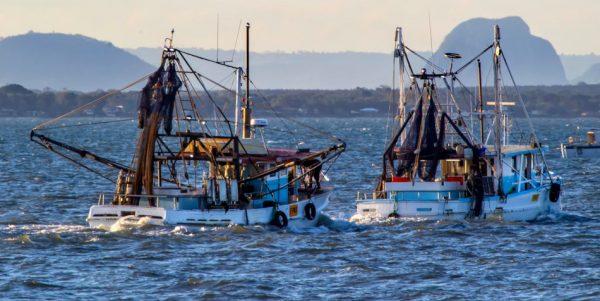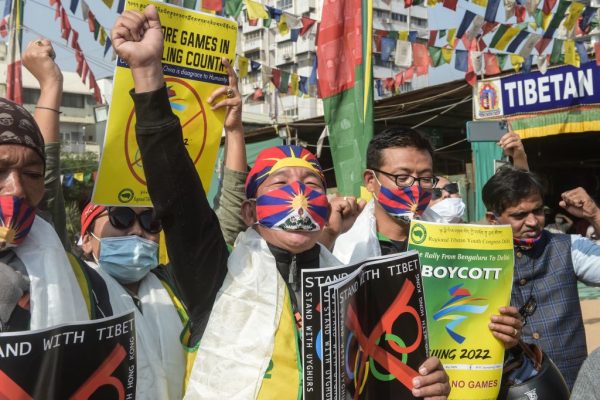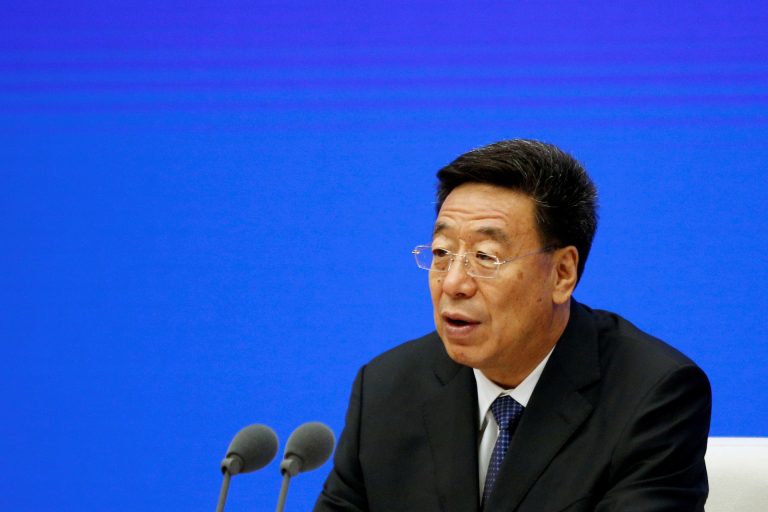WASHINGTON, United States — On Friday, Dec. 9, the Biden Administration imposed sanctions on dozens of individuals and entities over alleged rights abuses — including Russia’s Central Election Commission, Iranian officials and Chinese nationals.
In addition, the U.S. Treasury Department said it would also impose sanctions on Li Zhenyu and Zhuo Xinrong, both Chinese nationals, and 10 entities linked to the two, including Nasdaq-listed Pingtan Marine Enterprise (PME), over what Washington claims are human rights abuses tied to China-based illegal fishing.
The designation of PME marks the first time the U.S. has imposed sanctions on an entity listed on the NASDAQ stock exchange.
PME, its founder Zhuo — another of the sanctioned companies Dalian Ocean Fishing Co. — and China’s embassy in Washington did not immediately respond to requests for comment, Reuters reported.
Washington also targeted 157 China-flagged fishing vessels linked to the sanctioned entities, it said.

Turning up the heat
Success
You are now signed up for our newsletter
Success
Check your email to complete sign up
U.S. President Joe Biden in June signed a national security memorandum to fight illegal fishing, part of pledged efforts to help countries combat alleged violations by fishing fleets, including those of China.
Countries around the world chafe at China’s fishing practices, arguing its vessels often violate their 200-nautical-mile exclusive economic zones (EEZ) and cause environmental damage and economic losses.
The Chinese government has shot back by claiming its state corporations have followed fishing regulation, and that it has been cooperating internationally to clamp down on illegal fishing; it fishes in relevant EEZs according to bilateral agreements, Beijing said.
However, the US Treasury issued a general license authorizing U.S. persons to engage in certain transactions related to debt or equity of PME until March 9.
“These designations demonstrate how seriously we take the problem of illicit fishing and our commitment to holding the perpetrators of serious human rights abuses to account,” the Treasury’s Under Secretary for Terrorism and Financial Intelligence, Brian Nelson, said in the statement.
The stock closed Thursday at 65.7 cents a share and was subject to a trading halt on Friday following Treasury’s sanctions announcement.
PME’s market value is less than $60 million, making it a small stock, and there was no indication the move to sanction the company had a wide impact on Friday trading.
Human rights abuses, corruption
In separate action, the Treasury also designated 40 individuals and entities connected to alleged human rights abuse or corruption across nine countries, including Russia, China and Iran.
Washington imposed sanctions on Russia’s Central Election Commission, accusing it of helping to oversee and monitor what the United States said are “sham referendums” held in Russia-controlled areas of Ukraine, as well as 15 of its members.
Treasury also took action against four people it accused of being directly involved in Russia’s filtration operations. The State Department designated two Russian nationals over alleged human rights abuse against Ukrainian civilians.
Russia has been accused of numerous war crimes since its invasion of Ukraine in February, including by operating a system of so-called “filtration camps” to move Ukrainians in occupied areas into Russia.
Russia has denied the allegations and accused Ukraine and its backers in the West of a smear campaign.
The US Treasury also slapped sanctions on two Chinese officials it accused of serious human rights abuses in China’s Tibet region: Wu Yingjie, a Chinese Communist Party (CCP) chief in Tibet between 2016 and 2021, and Zhang Hongbo, a senior public security official in the region.

Chinese authorities have long been accused of harsh policies to quell ethnic dissent and control religious activities in Tibet — accusations that the CCP has dismissed as untrue and an attack against its government policies.
Friday’s action also imposed sanctions on Iranian officials over the crackdown on protesters, North Korea’s Ministry of State Security Border Guard General Bureau and Alpha Conde, the former president of Guinea, as well as other people and entities in El Salvador, the Philippines, Mali and Guatemala.
China and Russia’s embassies in Washington and Iran’s mission to the United Nations in New York did not immediately respond to requests for comment on the actions.
Friday’s move freezes any U.S. assets of those designated and generally bars Americans from dealing with them.
Reuters contributed to this report.














